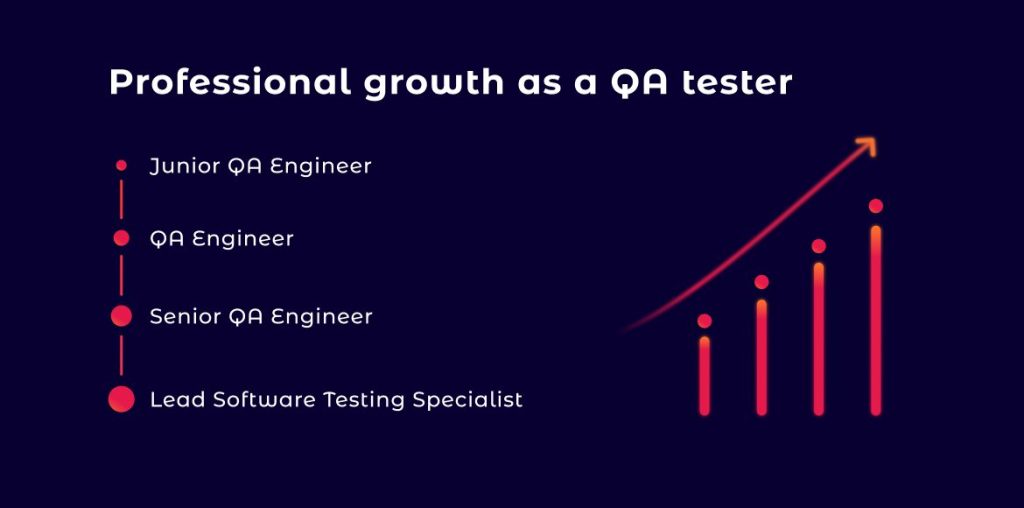Becoming a Top QA: 10 Vital Steps You Need to Know
10 Most Important Steps that Will Help You Become a Successful QA
The domain of Information Technology is a vibrant, ever-evolving sphere providing a plethora of opportunities for professional growth. One such potential-filled trajectory is the role of a QA tester. However, what is QA testing? How does one transition into a QA tester? These are common inquiries among budding QA aspirants. This article aims to address these questions and provide an all-inclusive roadmap to becoming an exceptional QA tester.

Understanding QA
QA stands for Quality Assurance. In the context of software development, QA encompasses a systematic set of activities and methodologies designed to ensure a product or service aligns with predefined requirements and standards. Quality Assurance is a pivotal element of the software development lifecycle, playing a critical role in ensuring superior product quality.
The Significance of QA in Software Development
Quality Assurance holds paramount importance in the software development process. It lays down the foundation for software testing best practices, ensuring the final product meets the anticipated level of quality. By adhering to QA methodologies and QA processes, developers can detect and rectify bugs and defects early in the development process. This proactive approach results in superior product quality, increased customer satisfaction, and substantial cost savings in the long run.

Preparation for the QA Role
Becoming a proficient QA tester necessitates a comprehensive understanding of the software development process. This includes acquainting oneself with various QA methodologies and strategies, such as Agile and Waterfall. It is also imperative to gain knowledge and practical skills in software testing. This involves understanding the intricacies of QA testing, learning to craft test cases, and mastering the nuances of bug reporting.
The role of a QA tester is multi-faceted and demanding. It requires a combination of technical and soft skills. You need to possess a keen eye for detail, strong problem-solving capabilities, and the ability to communicate effectively with a range of stakeholders. Staying current with the latest QA processes and software testing best practices is also critical to delivering optimum results.
Steps to Ascend as a Top QA
Communication and Collaboration
QA testers frequently need to interact with developers, project managers, and other key stakeholders. Therefore, robust communication and collaboration skills are crucial. Building relationships with stakeholders and effectively collaborating with team members can significantly enhance the efficiency and effectiveness of the QA process.
Technical Skills and Tools
Becoming a top-tier QA tester requires a firm grasp of the technical aspects of software development. This encompasses learning automation tools and technologies, honing manual testing skills, and understanding programming languages and databases. Familiarity with test automation and test planning tools can amplify your efficacy as a QA tester and make you an indispensable asset to any software development team.
Professional Advancement
The tech industry is in a constant state of flux, and to maintain relevance, it is essential to stay abreast of industry trends and best practices. This can be accomplished through perpetual learning and professional advancement. You might contemplate seeking training and certifications, networking with other QA professionals, or even participating in pertinent QA projects. Effective application of the skills acquired in daily practice is also vital for professional growth.

In a nut shell
Becoming an exceptional QA tester is a journey that requires commitment, continuous learning, and a profound understanding of QA methodologies and best practices. By adhering to these ten pivotal steps and focusing on enhancing your skills, you can thrive in this dynamic field and make a significant contribution to your organization's success. Remember, as a QA tester, your primary responsibility is to assure quality.

